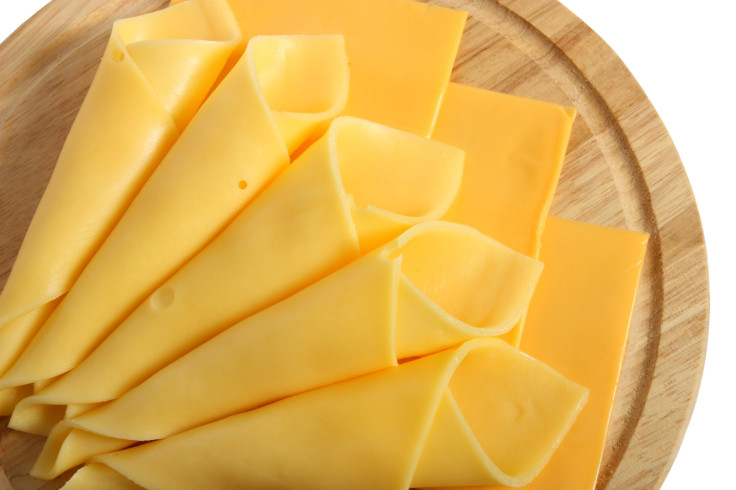Nutritionists Gave Kraft Singles A ‘Kids Eat Right’ Label, And No One Really Knows Why

Kraft Singles: Those individually-wrapped, yellow American “cheese products” that, when slapped between two slices of Wonder Bread for a grilled cheese sandwich, can be pretty tasty. But they're definitely not the stuff of healthy, organic eating, since good ol’ Kraft is notorious for pumping its products with a lot of sodium, dyes, fat, and preservatives.
It may be rather confusing to find out then, that these very Kraft Singles seem to have been given a seal of approval from the Academy of Nutrition and Dietetics, an organization that represents some 75,000 registered dietitians and nutritionists. The organization has placed the new “Kids Eat Right” label onto the cheese products, which will now be featured on its packaging in your local grocery store, reminding parents that Kraft cheese is… good for you?
The Academy of Nutrition and Dietetics has released a statement hoping to clarify, noting that "Kraft is putting the 'Kids Eat Right' logo [on its packaging and] saying Kraft is a proud supporter of Kids Eat Right, not vice versa. The Academy has never once endorsed any product, brand or service, and we never will.” But it's likely this is going to confuse everyone, anyway.
Also, nutritionists at the Academy claim that these particular Kraft singles contain a lot of calcium, as well as vitamin D, and that should be reason enough for kids to eat them. Kari Ryan, director of nutrition, science and regulatory affairs at Kraft, as well as a member of the Academy, told The New York Times that 80 percent of girls and 75 percent of boys between the ages of 4 and 18 don’t get enough calcium.
“We saw the synergies in taking our mission and the mission of the Academy, and making them into one to drive education and awareness around the nutrient needs of children and how to address them,” Ryan told The Times.
In addition, under pressure from health advocates, Kraft has been trying to clean up its act. Last year, the company claimed it would be removing artificial preservatives from its full-fat American and White American Kraft Singles. And in 2013, Kraft agreed to remove artificial dyes from its Macaroni and Cheese products in the U.S. and Canada.
While this is all a good step for a company that is lagging behind in the healthy ingredients department, the question remains: why would the Academy of Nutrition and Dietetics choose Kraft Singles, out of all possible products out there, as its very first “Kids Eat Right” product?
“The 'Kids Eat Right' logo on Kraft Singles packaging identifies the brand as a proud supporter of Kids Eat Right,” said Mary Beth Whalen, executive director of the Academy, according to the Times. “It also serves to drive broader visibility to KidsEatRight.org, a trusted educational resource for consumers.”
But it’s hard to say how parents will interpret the logo. Will they see it as a stamp that proves Kraft Singles are a trusted healthy food source for the kids?
“I am really shocked that this would be the first thing that the Academy would choose to endorse,” Casey Hinds, a mother and advocate for improving the healthiness of children’s food, told The Times. “It’s confusing and just one more way that feels like as parents, there are so many forces working against us as we’re trying to raise healthy kids.”
According to Fooducate, one slice of the cheese product contains 70 calories, 45 of which are from fat. One slice also contains about 15 percent of the maximum daily consumption of saturated fat, and 11 percent of maximum daily consumption of sodium. So take the “Kids Eat Right” label with a grain of salt. While Kraft Singles may be good every so often — in moderation — to provide kids with more calcium and vitamin D, it may be better to stick to other sources for those necessary nutrients, like broccoli and milk.



























